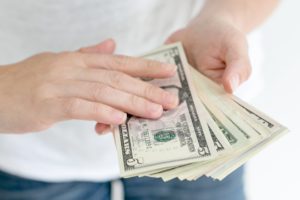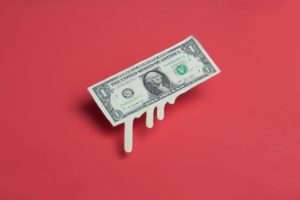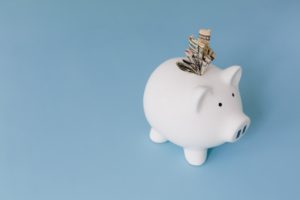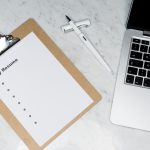4 Simple Steps To Reduce Debt

Contents
Step 1: Knowing Where Your Debt Is
I know it may seem like a simple task but it can absolutely work wonders if you know exactly where your debt is coming from. Furthermore, how much it is and when payments are due. Often times, people are so overwhelmed that they can’t keep up. However, if you don’t know where to pay, how do you ever expect to dig yourself out of that whole?
I once knew a lady who was in so much, it even got to the point where we realized that another company had been taking money out of her account without her even knowing, for the total sum of $2,200.00! That’s money she could have spent elsewhere or allocated to different debts that were owing at the time.
-
Take a look at all your statements, from all forms of credit or debit cards.
-
Note down when each payment comes out and how much it is
-
Record how much you must pay a month in strictly debt
-
If you are ever unsure of how much remaining you owe on a particular debt, call the company directly.
-
Get an EXACT number of how much you owe in total and on a monthly basis. You’ll want an exact number because you want the sum to seem manageable, rounding up can make the sum feel larger than life)
-
Also include any mortgage, phone, internet, utility payments, etc. The point of this section is to amalgamate the total amount of money coming out of your account on a monthly basis
Congratulations! You know have an exact number of how much you as a total and monthly, this means you can take the next step towards being debt free!
Step 2: Calculate Monthly Income
I’m sure some of you have seen this coming, the next step to paying off debt would be to simply calculate all the income that you acquire on a monthly basis from all your difference income streams.
-
Take a look into your pay stubs on a bi-weekly basis and find out how much money is actually going into your bank account after taxes.
-
If you have a second job or some sort of passive income make sure you factor in those profits after taxes as well
Step 3: Subtract and Track
 All these steps are so simple and you may be saying “well it’s obvious I should do this”. However, people really do underestimate just how much organization and budgeting can propel you in to have a more comfortable lifestyle. Everyone I’ve ever know who has been debt free has been meticulous when it comes to the flowing of their cash.
All these steps are so simple and you may be saying “well it’s obvious I should do this”. However, people really do underestimate just how much organization and budgeting can propel you in to have a more comfortable lifestyle. Everyone I’ve ever know who has been debt free has been meticulous when it comes to the flowing of their cash.
-
Subtract how much money comes out of your account from how much goes in on a monthly basis (don’t forget to mark down the type of debt and how much)
-
Acquire the leftover money from spending every month.
-
Assuming that the number is positive, we are going to want to do something called ‘paying yourself’. This is when you’re going to want to take a certain amount percentage of your annual or monthly earnings and set it aside for investing or savings.
-
Budget yourself accordingly after you’ve paid yourself
Step 4: Acquire and Reduce
Now that you’ve done all the previous steps, you can now begin to see the difference that an organization makes. This article is not just to pay off debt or get you set up for paying it. It is to offer valuable lessons on what the everyday person should be doing even when they’re not in a substantial amount of debt. Now that you’re budgeting, seeing where your cash is flowing to and form. This will help you make clearer decisions on what you want to do with that excess money.
This next step and possibly the final step is to acquire more income. Most people who are in debt and are struggling to pay it off are doing so while earning a single source of income. This single income is too close to the amount that being is taken out from their account every month. This causes people to spend more than they have and constantly put themselves into debt.
-
See how long it’ll take for you to pay off the debt completely at the current rate.
-
See which debt would be the quickest to finish if you were to put a bit of extra money in it.
-
Find another source of income (a second job, a small side business in spare time)
-
Finding a second source of income. This may be difficult depending on the individual’s situation. However, that little extra money will make all the difference. (see the article for ideas on second sources of income!)
-
With the second source of income or money accumulated from saving, pay off the smallest debt first (helps the individual feel accomplished that they are able to get one milestone out of the way). Plus, paying off debt is a marathon, not a 100m sprint, it takes dedication.
Summary
So you’ve learned the first basic steps in order to pay off debt but in case something was missed lets recap:
-
Find out where all your debt is
-
How much it is
-
The amount that is taken out every month.
-
Add in any other expenses like phone
-
Find out how much money is consistently coming into your account.
-
Subtract spending and debt from the total amount of money made for the month.
-
Set aside money for yourself and budget remaining amount accordingly.
-
Find the second source of income or begin to put a little extra money into the easiest debt to pay off
-
Rinse and repeat until the debt is finished or more manageable!
Finishing debt is not about just being able to put a lot of money into the highest interest. There is a psychological effect that keeps people motivated. Stay organized, always read and learn new ways to better your life through your financial situation. Always find the time to make room for improvement within your life. Paying off debt is hard work but once it’s gone, it is one of the most rewarding feelings!

Shameed is just a man on a mission to help those around him gain financial success. Obsessed with writing about all things finance, this GTA native is constantly learning and sharing his experiences with others.






